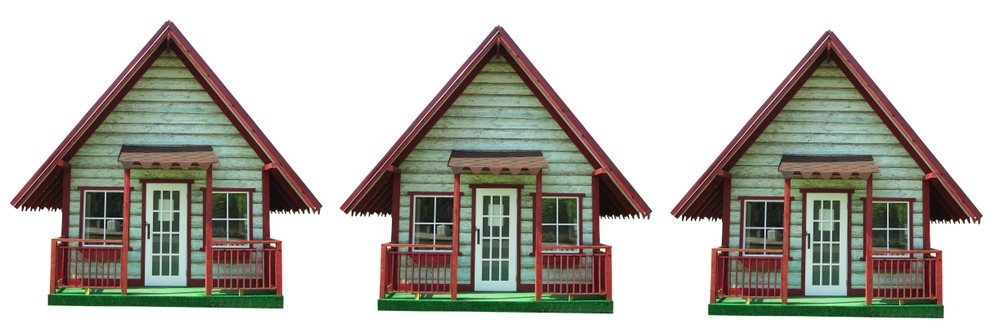A tiny-home startup in Lancaster County is poised for the big time.
A publicly traded shell company has agreed to buy Tiny Estates LLC and two related companies, Endeavor Tiny Homes LLC and Tiny Communities Fund LLC.
The companies are led by CEO Abby Shank, a former KPMG auditor-turned-entrepreneur who started a tiny-home community outside Elizabethtown in 2018.
Shank, who went on to build a larger business around the initial community, declined to comment. She referred questions to the buyer — Chase Packaging Corp., which has an administrative office in Rumson, New Jersey.
“The more we dug in, the more we were impressed with her, what they were doing and where the industry is going,” said Mark Nielson, a San Diego-based management consultant who sits on Chase’s board of directors.
Where’s it going: Nielson sees opportunity to grow the tiny-home business as an affordable alternative to high-priced traditional homes.
“This closes the gap for certain people,” Nielson said, particularly younger and older households of just one or two people.
Indeed, the move to smaller homes is a fledging trend dubbed “the great compression” in a recent New York Times article.
Nielson sees parallels to the manufactured housing industry, a sector with which he and some of his colleagues have experience.
“This is like manufactured housing 3.0,” said Nielson. “The quality is really good.”
Tiny homes also are emerging as a solution to homelessness among veterans, Nielson added.
How did this happen: Nielson said he met Shank when he reached out to the Tiny Home Industry Association, a trade association for the industry. Shank is a board member.
The two began discussing a potential deal about six months ago, Nielson said.
Tiny Estates oversees the development in Elizabethtown.
Tiny Communities manages tiny-home developments in Florida, while Endeavor is a licensed dealer for manufacturer Atomic Homes, an offshoot of Lititz-based staging company Atomic Design.
Altogether, the three businesses employ about 10 people, said Nielson.
He expects the companies to grow, in part, by offering management services to tiny-home communities around the U.S.
They will not be manufacturing homes.
“The companies provide a well-rounded offering for renters, homeowners, investors and developers, as well as a platform for geographic expansion into additional markets,” Chase said in a press release.
The buyer: Chase was a specialty packaging company that ceased operations in the late 1990s and has been looking for a new business ever since. Nielson, a former public-company CFO, joined the board in 2019.
The company had a potential deal in 2020 with an undisclosed third party but the deal fell through.
Chase’s stock trades over the counter and had been valued at about 4 cents per share for most of this year.
Shares jumped to about 18 cents last week on news of the potential merger with Tiny Estates.
What’s next: The merger is expected to close in the second quarter of this year and result in the Lancaster firms going public.
At that point, Chase would change its name and ticker symbol to reflect its new business.
Terms of the pending transaction were not disclosed, though Chase described it as involving the use of its stock.
Chase plans to raise additional capital in a private placement to support expansion of the tiny-home business. Nielson declined to disclose the amount.
The headquarters would remain in Lancaster County and Shank would be CEO, he added.
What’s tiny: Generally speaking, homes of less than 400 square feet, according to the industry trade association
Prices range from $30,000 to $60,000, according to online lender Rocket Mortgage, though amenities could drive the cost up to $150,000.
In the final three months of 2023, the median price for a home sold in the U.S. was $417,000, according to the St. Louis Fed.








